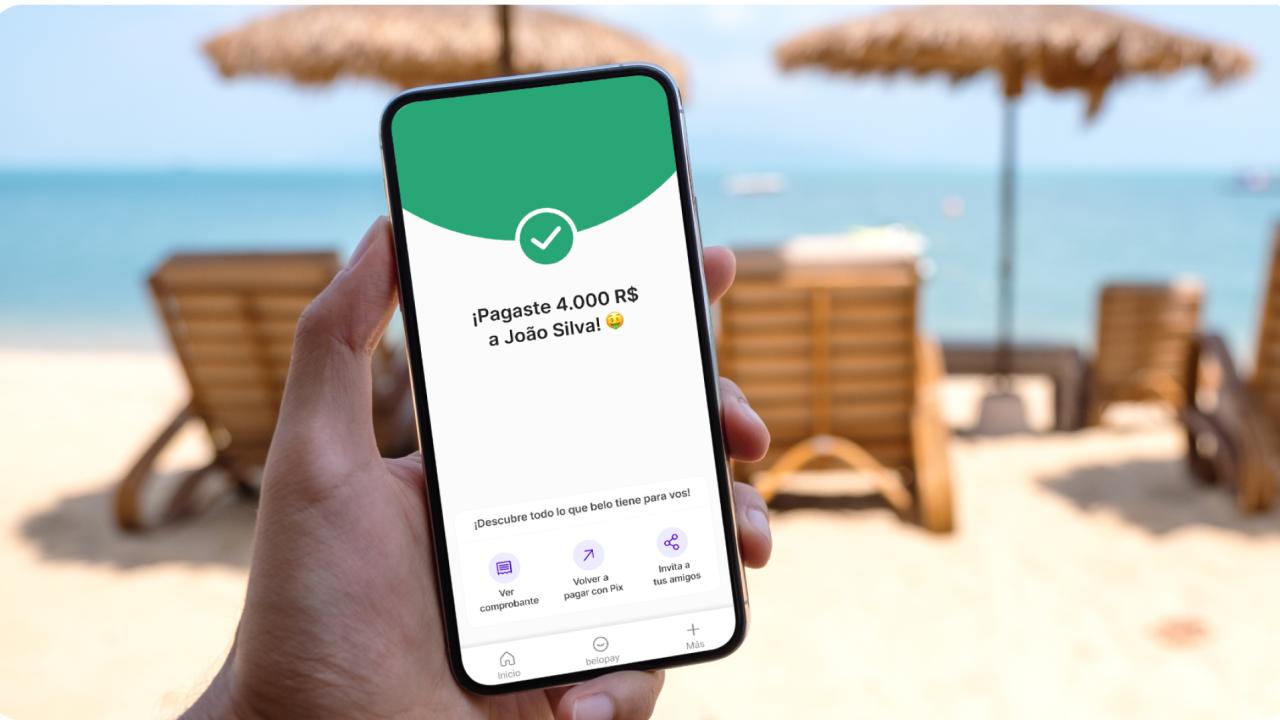
One year after the agreement between the two fintech companies, it has yielded results: in December, 150,000 Belo users are already using Pix on a regular basis.
Belo, a digital wallet aimed at facilitating international transactions, is starting the year off on the right foot. During the first week of January, the fintech reached more than 80,000 active users on Pix, the digital payment system of the Central Bank of Brazil.
It is a milestone in a process that began at the end of January 2024, when Belo decided to integrate Pix into its platform. The partnership has allowed Argentine travelers to carry out transactions in Brazil in a simplified way. Thus, barriers such as currency exchange and high bank fees were eliminated. We are talking about a strategy that paid off: by December, of the two million Belo users, 150,000 were already using Pix.
“We launched the solution last year and in the last month, there was an avalanche of competitors that came to the market. They used the same program as us: but we had already been showing it before. So we decided to develop our own infrastructure that allows us to have a comparative advantage against our competitors in terms of reducing payment processing time,” declared Manuel Beaudroit, CEO and co-founder of belo to AméricaEconomía .
Through this perspective, Beaudroit assures that with this new digital infrastructure, Belo will serve 5,000 new users per day and will reduce the payment time to three seconds for a more “satisfactory” experience.
The CEO believes that this last factor is key, because if the time is excessive, a cashier or seller may become impatient and reject this unconventional method of payment. Other factors must also be evaluated, such as whether the QR code is dynamic or static and whether the purchase can be made in person or virtually.
On the other hand, the Pix payment solution in Brazil is enabled for the 20 countries that belo covers in Latin America. In addition, there are other initiatives on the horizon. “We want belo to be a player that adds value to the Brazilian public. We are already working to allow Argentine businesses to charge Brazilians via Pix,” says Beaudroit.
Fintechs now face another major challenge in fraud prevention: the merchant accepting payment must be prevented from impersonating another person. But Beaudroit is confident that the simplified nature of the platform, which does away with credit, significantly minimises the risks.
“We have been growing very strongly in recent times. So by the end of this first quarter, we project that we will exceed five million users. We could reach ten million by the end of the year. How will we do this? Again, by building products that add value to the user, because we believe a lot in word of mouth to acquire new customers,” explains the CEO.
On the other hand, he also clarifies that a good part of the success in Brazil has depended on the role of its Central Bank in the creation of Pix. Unlike other countries such as Argentina, where the public sector has not provided as many facilities for the expansion of fintechs.









